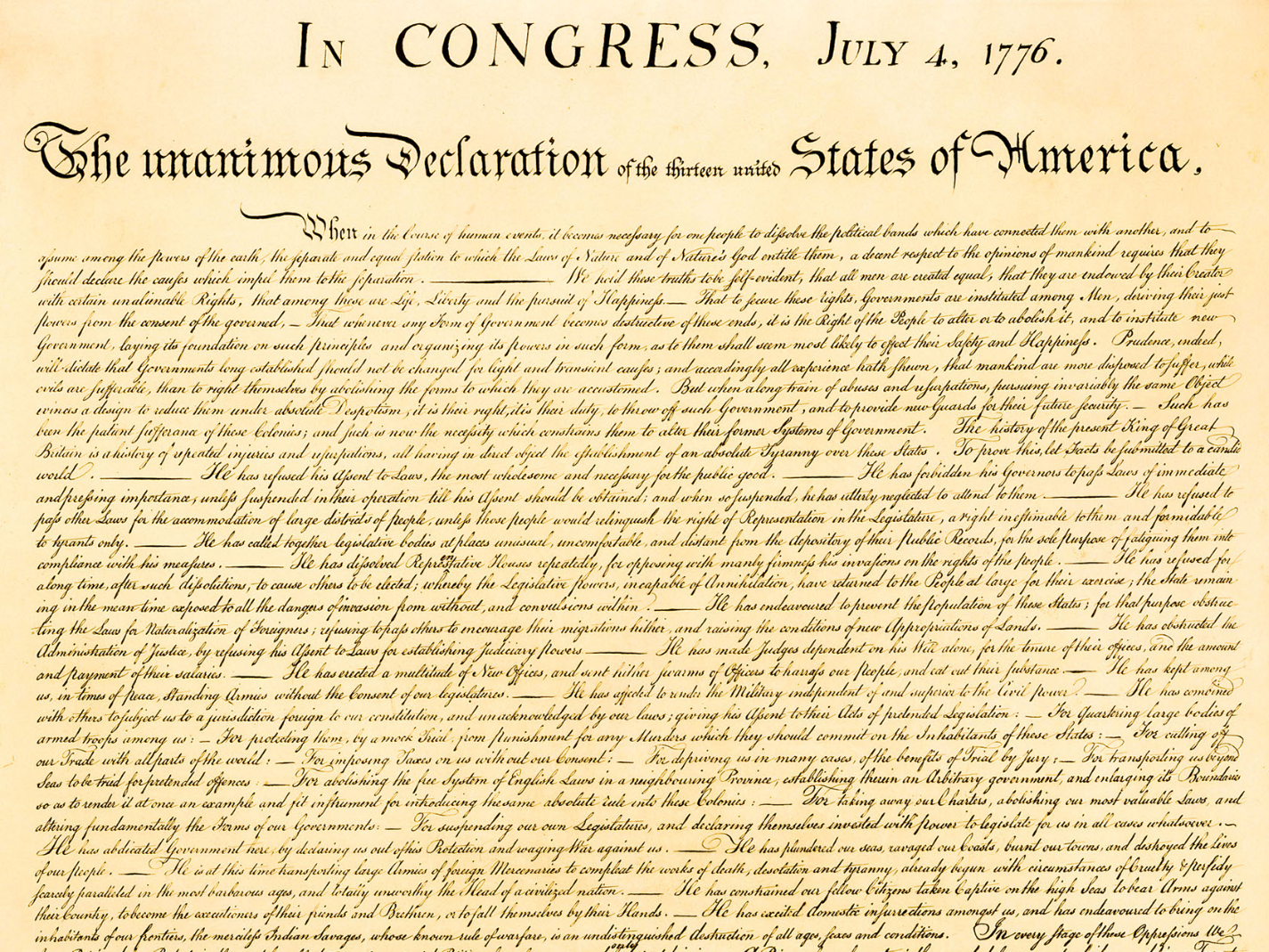
The Declaration of Independence teaches that America was founded as a meritocratic nation, a nation where people succeed based on merit, individual talent, and hard work.
How does the Declaration do this?
Its assertion that “all men are created equal” means that all Americans are equal in their ability to chart a path for themselves. The Declaration builds upon this argument by adding that all should be guaranteed life, liberty, and the right to pursue happiness – not happiness itself.
The principles of the Declaration laid the groundwork for what James Trudlow Adams called the American dream, which he defined as the “dream of a land in which life should be better and richer and fuller for everyone, with opportunity for each according to ability or achievement.”
It is that dream that has attracted millions of people from all over the world to come to America. It is that dream that has united us as a nation and driven us to become the most prosperous nation in the world.
[Related: “Four Things We Should Teach Children about the Constitution”]
It is that dream that Frederick Douglass and Martin Luther King Jr. – both supporters of America’s founding principles – wanted all Americans, regardless of skin color, to be able to achieve. They both wanted an even playing field for all. They built upon the progress already made and pushed America further along toward realizing the goal of making the American dream available to every citizen.
But it is that dream, that promise of our Declaration, that is now under attack. Admittedly, progress toward achieving that dream has been slow. But that is no reason to overlook the progress that has been made and replace the Declaration’s promise with something entirely different.
Instead of focusing on individual achievement based on a person’s own interests, merit, and hard work, some want to do away with the American dream and the principles upon which it is based.
In schools where I am involved in promoting our country’s founding principles and history, I see efforts to destroy the meritocratic concept, along with the idea of individual responsibility.
In New York, the previous mayor ended public school gifted programs. Teachers in California and elsewhere have already begun doing away with the A-F grading scale, citing concerns over “equity.”
[Related: “‘We The People’ Need to Stand Up for Our Nation”]
The proposed policy to forgive student loans is another issue on this front. Someone willingly sought a loan and pledged to repay that loan. But the government now says they don’t have to repay it, or at least, all of it. Others will, unwillingly, pay it for you. What a lesson to teach young people!
We seem to be rejecting the idea of merit and individual responsibility, two important pillars of the American dream.
Where is today’s Martin Luther King Jr. to build upon America’s progress and work toward achieving the Declaration’s vision?
I believe in the American dream, because it recognizes individual ability and effort. Though some fringe elements that have loud bullhorns reject it, I believe that the vast majority of our over 330 million citizens believe in that dream too.
I believe that schools must teach our young people, our future voters, the beauty and promise of the American dream so that they can continue the effort to realize it for all as well as for themselves. Now that’s something worth marching and petitioning our government for: saving the American dream.
Editor’s Note: This article was originally published by RealClearPolicy on September 28, 2022 and is republished here with permission.
Image: Tsado, Adobe Stock
The author makes a common mistake in not mentioning that this all comes from John Locke’s God-given rights of “Life, Liberty, & Property.” Not happiness….
Now this was in the era of property qualifications for voting and hence this was changed much as we now use the word “person” rather than “man” so as to be inclusive — the intent was to be clear that EVERYONE possessed these rights, not just the landed gentry.
But it was these INDIVIDUAL rights that King George had violated and what’s often lost is how this differed from the French Revolution and the COLLECTIVE rights of “Liberty, Fraternity, and Equality.”
Individual rights versus group rights, and 90 years later the word “Property” was used in the 14th Amendment, a point also often overlooked — and I argue that the intent was to protect the individual rights of individual freedmen and not the collective rights of a caste.
Yes, it is important to teach our founding documents (instead of Marxist dribble), but it’s also important to teach their origins, particularly as the issue of slavery is used to discredit our Founding Fathers.
I don’t believe that John Locke owned slaves…